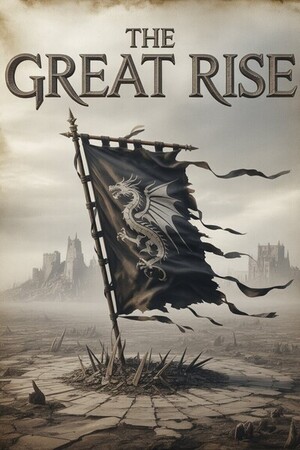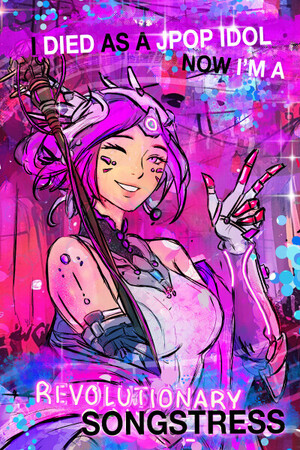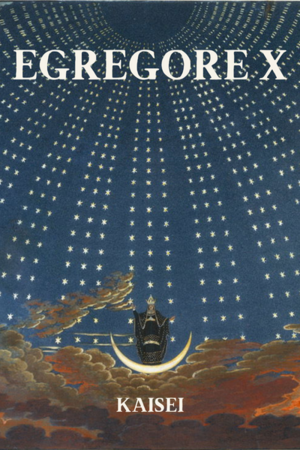Chapter 16:
Recruiting refugees
The Great Rise
On the open ground south of Tinietz City, white mist bubbled from a large clay pot, and a red-haired fellow was diligently adding firewood to the blaze. The flames danced wildly, and the aroma of wheat wafted from the clay pot into the shantytown. Soon, the shantytown erupted as hungry refugees, drawn by the smell, poured out. The area around the bonfire and clay pot was immediately packed, with groups of ragged adults and children staring at the pot, drooling.
However, with Odo, Bass, and Roen standing by with spears and axes, no one dared to rush forward and openly snatch anything.
Art, who had been standing beside them for a long time, saw that many refugees had already arrived and nodded to Odo. Odo turned and shouted loudly at the surrounding crowd, “Everyone quiet! Everyone quiet! Everyone quiet, dammit!”
The crowd slowly quieted down.
Odo continued to shout, “This is Master Art, the newly appointed Patrol Officer of the Southern Border. My Master wants to recruit a group of refugees to go south with the army to clear land and farm. Master is benevolent; until the crops are harvested from the newly cleared land, Master will provide food and lodging. Those who enlist now will also receive ten pounds of hulled barley per household.”
The crowd immediately stirred. If food and lodging were truly provided, their families would not have to starve and freeze to death here.
After the scene quieted, Odo continued, “The reclaimed land will be leased to everyone for cultivation. There will be no taxes for the first year, and thereafter, only one-fifth of the harvest will be collected. Furthermore, after five years of cultivation, the land will completely belong to you. Labor and taxes will certainly be lighter than what you faced under your former Master. Where else will you find such a good deal?!”
The crowd had been listening quietly, but upon hearing this condition, they immediately began buzzing with discussion.
A refugee hesitated and asked, “Master, aren’t they fighting in the south? We barely managed to escape to the north; we dare not go back.”
Odo glanced at the scrawny refugee, then looked up at everyone and said, “The place we are going is not northern Provence; it is a peaceful place to the southeast of here. There will be no war there.”
The refugees discussed amongst themselves. Art watched these people; most were disheveled and as thin as sticks. They stood in groups, clearly organized by their original villages or regions. Each group had one or two leaders, with the others gathered around them, discussing.
After one of the larger groups of refugees finished their discussion, a slightly sturdier leader stepped forward and asked, “Master, are there bandits or mountain brigands where we are going? If we encounter bandits or mountain brigands, we could lose our lives.”
“Rest assured, our Master is a Patrol Officer, specifically tasked with apprehending bandits and eliminating mountain brigands. Bandits and mountain brigands will not dare to plunder you.”
The leader asked again, “If we all go, can we be given some food and money first, so we can prepare to leave with you?”
Odo’s eyes darted around. This person clearly wanted to take advantage of the situation. If he gave them money and food, where would he find them if they ran off? He shook his head and said, “Those who wish to come with us, we will arrange for them. Besides, with such good conditions, we also need to select; it’s not just anyone who wants to go can go.”
The dense crowd of refugees hesitated. After all, they had barely managed to escape to the north, and now they were being asked to return south. Though it was said there would be no war or bandits, no one felt entirely secure.
Odo said unhurriedly, “Everyone, think carefully. If you wish to stay here and freeze or starve to death, that’s up to you. If you are willing to follow Master Patrol Officer with the army to farm, you might even live a good life with bread every meal and thick porridge every day.”
Seeing that the crowd was still somewhat hesitant, Odo stepped half a pace to the side, revealing Art behind him, and said, “This is my Master. He is the Southern Border Patrol Officer personally appointed by the Court Minister of Public Security. You will not be at a disadvantage by following him.” Behind Odo, Art, clad in leather armor, a leather cape, and a longsword at his waist, indeed possessed a formidable and imposing presence.
That leader stepped forward, closer to Art, and asked, “Master, how many people are you recruiting?”
Art did not like this leader much. He currently had too few people and would not recruit too many from the same group. Otherwise, if these people banded together and caused trouble, how would he manage them? He had already decided not to take this leader.
Art ignored the questioning leader and spoke loudly to the surrounding people, “I am Patrol Officer Art. If you don’t want your wives and children to freeze or starve to death here, then follow me. As long as you are chosen by me, you can drink porridge immediately, and tonight there will be a meal of meat soup with bread. You will not go hungry when clearing land and farming in the future. I am only recruiting ten households in total; once filled, I will not take any more.”
Upon hearing that only ten households would be recruited, but there were easily two or three hundred refugees here, and those from north of the city had not even arrived yet, the chance of being selected would be much smaller if more people came. Some became anxious, and the crowd began to stir.
“Master, do you still remember me? Please see if I can be chosen.” A short, dark-skinned refugee, about thirty years old, stepped out and spoke loudly.
Art looked closely; it was the man he had saved from the ruffians over twenty days ago.
With the first person brave enough to step forward being an acquaintance, Art breathed a sigh of relief. He gave Odo a slight nod. Odo stepped forward, turned over the refugee’s palm, which was thick with calluses. Odo then pulled open his ragged clothes; there were also scars on his right shoulder, indicating he was likely a farmer who had long pulled plows and dug soil.
Odo nodded and had him stand before Art. Art scrutinized him. This fellow looked as lean as Scott—dark-skinned and simple-minded, just even more emaciated than when he was outside the city last time.
Art asked, “Last time, I was in a hurry to travel and didn’t get to ask your name?”
“Master, thank you again for saving my life. My name is Lawrence. I am from Alsburg at the foot of Bore Mountain in the southeast. I brought my family and fled here this autumn.”
“I remember you have a wife and daughter, right? How old is your child?”
“To Master, my daughter is twelve years old.”
“Alright, you are chosen. You may go drink porridge.”
Lawrence, upon hearing this, quickly returned to the crowd, pulled out his wife and daughter, and after kneeling heavily before Art, went directly to the clay pot. Kazak had already prepared several large bowls of wheat paste, waiting for them. Lawrence’s family, not caring about the scalding hot food, embraced their wooden bowls and began to drink.
The surrounding refugees, seeing Lawrence’s family wolfing down the food, could no longer hold back. Several more ran out, surrounding Odo, wanting to sign up.
Odo saw more and more people gathering around him and quickly said, “Alright, everyone, one by one. Only ten households are being recruited; if you’re late, there won’t be any left.”
A group of refugees quickly lined up. Odo examined them one by one. Several households met Art’s pre-determined requirements, so he sent them to Art for a second selection.
Several households in a row were refugee families with strong men, no children, or children in their teens. They all passed Art’s selection and rushed to the clay pot to eat…
The surrounding refugees, seeing others drinking porridge, couldn’t stop swallowing their saliva and, disregarding the queue, surged around Odo in a disorganized manner. Bass and Roen, with short spears and battle axes, repeatedly threatened them, barely preventing them from taking advantage of the chaos to snatch food.
These refugees were truly pitiable; throughout the entire winter, they had survived on a few bowls of wheat porridge provided by Tinietz County City relief, but that porridge was almost entirely water. So, when everyone saw the fragrant, thick porridge steaming from the clay pot, who could resist? The crowd erupted, and some latecomers desperately pushed to the front, with shouts and curses filling the air.
Another refugee, who had passed Odo’s selection, came before Art. “What’s your name? How old are you?”
“To—to Master, my name is Lynn, and I am twenty-one years old.”
“Do you have children?”
“I have one son and one daughter.”
“How old are they?”
The refugee named Lynn, standing before Art for a long time, became even more nervous, his voice trembling slightly: “One—one is four years old, and one is six years old.”
Art lowered his head in thought. He was recruiting people to clear land and farm. Children so young couldn't do any work, and he would have to waste food feeding them, which was very uneconomical. So, Art planned to refuse this refugee with his family in tow.
“You—”
Art hadn’t even uttered his refusal when two small children stumbled over, ready to go to the clay pot to drink porridge. The refugee quickly stopped them, repeatedly saying, “Master hasn’t agreed yet, wait! Wait!”
Both children were barely clothed, their hair as dirty as mud-stained hemp rope, matted together into strands. Their outstretched hands were like dry kindling. A thin woman, similarly disheveled, chased after them, pulling the two children.
Both children looked up at Art, their dark faces streaked with two trails of snot. Art couldn’t even tell which was the boy and which was the girl. The children’s eyes had lost the innate innocence of childhood, leaving only pleading. He didn’t know how long they had been starving, following their refugee parents.
“You—” Art’s “you” hung on his lips for a long time, but the rest of his words never came out. Roen and Kazak and the others quietly watched him, waiting for his decision.
“You—are chosen.” Art cursed himself inwardly.
The refugee had waited anxiously for a long time and finally received the good news. He, his wife, and children all knelt on the ground, repeatedly kowtowing. Art helped the refugee and the children up, telling their family to hurry and drink the porridge.
“Roen, Roen, come here.”
Roen ran over.
Art whispered into Roen’s ear, “In a moment, you stand in front of me. For those Odo has selected, if their household has elderly people or children under ten, do not accept them, without exception.”
Art still let Roen play the bad guy for him.
Thus, the subsequent selection had three stages: Odo only checked if the refugees were physically strong and had honest faces; Roen inquired about the family situation of those selected by Odo; and Art, at the end, merely put on a show to indicate that he was the ultimate decision-maker.
In between, several refugee families passed Odo’s selection but were not chosen by Roen. Several families, old and young, knelt before Roen, pleading. Roen, having fled north with his parents, had long been accustomed to even more tragic sights and was completely unmoved by the refugees’ pleas on the ground.
Art looked at the completely untouched Roen and couldn’t help but sigh, “This world doesn’t allow for my kind of false benevolence…”
In less than a morning, Art and his companions had selected twelve households, totaling thirty-one refugees. These thirty-one people mostly came from various parts of northern and southern Provence. After rigorous selection, with the exception of the one household Art specially permitted, the rest were hardworking young men and women, and teenagers around ten years old. They would all be excellent hands for farming and cultivating land.
A group of selected refugees wolfed down food by the clay pot. The surrounding refugees drooled, enviously watching the thirty-odd lucky ones with full bellies, lingering for a long time, unwilling to disperse.
“Odo, go ask among the refugees if there are any craftsmen, preferably blacksmiths or builders.”
After a long while, Odo brought back a white-bearded old man.
The old man’s name was Bard, originally a carpenter from Aosta City. After his only son died in battle, the old carpenter fled to Tinietz with his old wife and young grandson. Master Pierre had recruited all the craftsmen among the refugees into the city, but being old and frail, and accompanied by his elderly wife and young grandson, he had never been able to enter Tinietz City.
During the recent selection, the old man was also directly sent away by Odo.
“Master, he’s just an old carpenter, and he has his old wife and young grandson with him~” Roen reminded Art.
Art was also helpless; the skilled craftsmen among the refugees had long been selected and settled in the city by Master Pierre. He pondered in silence for a moment and said, “Take him. Let him assist Cooper as a helper. Perhaps he can even make some farm tools.”
Then he called over Odo, Roen, Bass, and Kazak, forming a small circle. Art told them, “Have them gather here this afternoon. Select all the able-bodied men, remember their names, and then distribute food by household.”
…
The next morning.
Snowflakes drifted down from the sky, covering the ground in white. A horseman, accompanied by four armed strongmen, escorted a group of refugees carrying large and small bundles along the road heading south.




Please sign in to leave a comment.